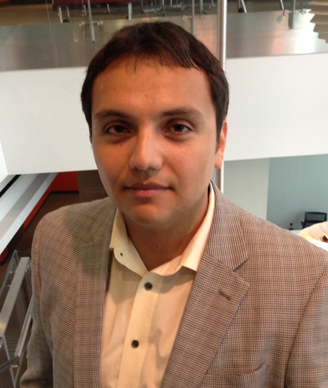Thoughts on the Annual PLATO Fellows Forum in Breast Oncology
This morning I attended the Annual PLATO Fellows Forum in Breast Oncology at ASCO. This is a fantastic venue in which oncology trainees can learn about cutting-edge breast cancer management strategies and the frontiers of research.
Cesar Santa-Maria, MD

This morning I attended the Annual PLATO (Physicians Learning and Teaching in Oncology) Fellows Forum in Breast Oncology at ASCO. This is the third year that this forum has taken place, and one of the refreshing things about it is that it is funded exclusively by foundations, rather than pharma.
This is a fantastic venue in which oncology trainees with an interest in breast cancer can learn about cutting-edge breast cancer management strategies and the frontiers of research, as well as interact with world-renowned experts, such as Drs. Larry Norton, Martine Piccart, José Baselga, Carlos Arteaga, and several other prominent physicians and investigators.
This year we reviewed several cases of patients with breast cancer, exploring the difficulties and complexities in the management of specific subtypes of the disease, where the research has taken us, and where it may take us in the near future.
One particular case that was presented was about a woman in her 40s with an aggressive phenotype and lymph node–positive, estrogen receptor–positive breast cancer. We reviewed the role of neoadjuvant therapy and the significance of pathologic complete responses. Furthermore, we considered what factors-such as histologic grade, nodal status, and response to therapy-will affect the patient’s prognosis. The luminal B–like phenotypes of breast cancer (aggressive estrogen receptor–positive tumors) are generally more difficult to treat because they respond less readily to endocrine therapies, and conventional cytotoxic chemotherapy is also of limited efficacy.
Dr. Arteaga discussed how developing better biomarkers that will tell us which patients are more likely to respond to available therapies is crucial and is an active area of research. In this case, it was noted that the patient did not have estrogen receptor positivity in a metastatic site; however, our expert panel reminded us that the sensitivity of these tests varies depending on the quality of the assay performed, and while most patients with estrogen receptor–positive disease will likely retain estrogen receptor positivity, there may be a spectrum of mutations in the receptor at different metastatic sites.
This issue sheds light on a major hurdle in treating cancer, which is heterogeneity within a tumor and in other metastatic sites. Dr. Piccart mentioned studies in Europe that are investigating novel imaging modalities that show the distribution of estrogen receptor– and HER2-positive metastatic deposits, a unique approach to understanding tumor heterogeneity at various metastatic sites. Still, developing treatment strategies will be a challenge, but understanding the biology of the disease and its metastatic behavior is a crucial step.
As this case demonstrates, there are many more questions and issues that need to be addressed in order to improve the care of patients with breast cancer. For a young investigator, these are truly exciting times, and through collaborative efforts we will advance the field and improve outcomes for patients with breast cancer. I enthusiastically recommend this forum for any oncology trainee, particularly those interested in breast cancer, whether they are interested in clinical practice or an academic career.